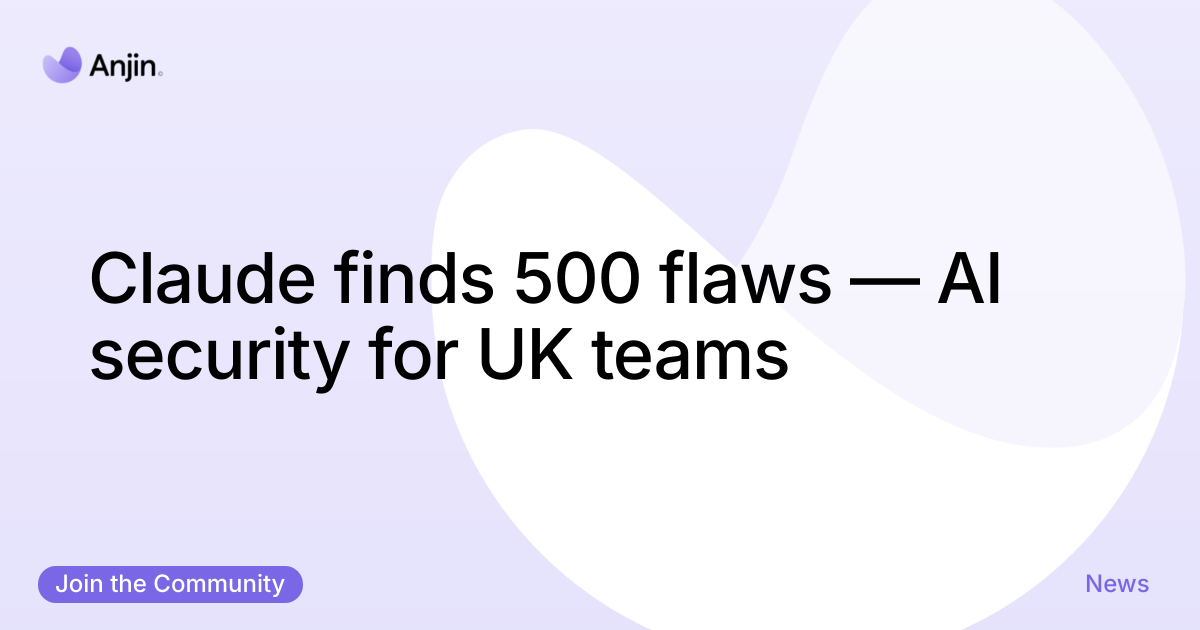1. Gemini 2.5 and Gemini Agents
Google introduced the Gemini 2.5 family, which includes:
- Gemini Flash – a lightweight model optimised for on-device and low-latency applications.
- Gemini Pro 2.5 – enhancing reasoning features across Workspace and Pixel devices.
- Gemini Ultra 2 – scheduled for release later this year and aimed at handling more complex tasks.
The real headline was the unveiling of Gemini Agents. This new framework enables developers to build multi-step task automations across apps and services using natural language. These agents can operate within Android 16, Workspace applications, and ChromeOS, marking a transition from static chatbots to full workflow execution platforms.
Gemini Agents are supported by new APIs and an orchestration layer. Initial SDKs are planned for Chrome and Android, and the framework uses Gemini’s Deep Think reasoning for state retention, error recovery, and plugin support.
Explore how Anjin supports enterprise-grade agent orchestration on our Ai Agents page.
2. Search Gets “AI Mode”
AI Overviews have been rebranded as AI Mode, providing a more interactive and conversational search experience. Key features include:
- Deep Research Panel – allows users to dive deep into topics with multiple perspectives through a Gemini-powered chat interface.
- Gemini Chat Integration – embedded directly into search results for more intelligent follow-ups.
- AI Shopping Trials – Gemini is assisting users with product decisions, including laptops and travel bookings, through test deployments.
The rollout of AI Mode globally positions Search as an intelligent research assistant rather than a static index of links.
3. Workspace and Chrome AI
Gemini's deep integration across Google Workspace includes:
- Gmail – smarter personalised replies and context-aware summaries.
- Docs and Sheets – upgraded smart-fill and context-sensitive auto-completion.
- Meet – real-time translation and summarised recaps after meetings.
In Chrome, Project Mariner brings Gemini-powered agents to browser tabs. Users can generate summaries, rewrite content, and interact with web elements natively without switching tabs or tools.
4. Android 16 and On-Device GenAI
Android 16 brings major AI upgrades:
- Gemini Nano – now embedded on-device, unlocking real-time generative tasks with reduced latency.
- ML Kit GenAI APIs – a new toolset for developers building on-device LLM experiences.
- Live Translate Enhancements – with improved accuracy and additional language support.
- Enterprise-Grade Device Tracking – security-hardened location tools for managing fleets.
- XR Foundation Layer – foundational updates to Google's extended reality platform, with Samsung offering early previews.
Perhaps most notably, AiLink has been introduced. This new Intent type allows apps to trigger agent actions across the OS, paving the way for truly autonomous mobile workflows.
5. Creative Models and Tools
Google expanded its creative AI suite with a range of model upgrades:
- Imagen 4 – a cutting-edge image generation model offering photorealistic and stylistic output.
- Veo 3 – a multi-modal video generation model that integrates audio and visual storytelling.
- Lyria 2 – a music generation model capable of controlling tempo and harmonics.
New developer tools were also highlighted:
- Flow – an end-to-end AI filmmaking application, from script to output.
- Stitch – a Gemini-based assistant for UI/UX designers that supports low-fidelity prototyping.
- Jules – a developer assistant embedded into IDEs for agent-assisted coding.
Google also spotlighted AlphaEvolve, an AI-powered algorithm discovery tool that recently generated novel solutions for matrix multiplication and chip optimisation.
6. Hardware and XR
Google gave a glimpse of its vision for AI-integrated hardware:
- AI Smart Glasses Prototypes – created in collaboration with Gentle Monster and Warby Parker. These include features like live translation, task reminders, and spatial awareness overlays.
- Google Beam – previously Project Starline, now evolved into an enterprise-grade 3D video calling tool. HP devices will integrate Beam later this year.
7. Pricing and Ecosystem Moves
New pricing tiers were revealed to support various use cases:
- Gemini AI Pro (£19.99/month) – aimed at professionals seeking enhanced search, Workspace, and email functionality.
- Gemini AI Ultra (£249/month) – includes full access to Ultra 2 and agent-building APIs for advanced developers and enterprise teams.
Investor reaction was mixed. Google’s updates landed during the same week as Microsoft Build and OpenAI’s GPT-Store launches, making comparisons inevitable. Still, Google's push into agentic infrastructure signals a long-term commitment to enterprise integration.
8. What It Means
- Enterprise Automation Reaches Maturity
Gemini Agents are no longer an experiment. With APIs and SDKs rolling out, businesses must evaluate how agentic automation fits into their tech stack. - The Agentic Landscape Is Taking Shape
As Gemini enters the market alongside OpenAI's GPTs and Anthropic’s Claude Agents, organisations need to align their platform strategy with vendor capabilities. - Balancing Performance with Practicality
Enterprises should assess not just what Gemini can do, but how it does it—especially when it comes to orchestration control, memory persistence, and operational cost.
Anjin’s Take
At Anjin, we don’t see ourselves as competing with Google. Instead, we extend the power of frameworks like Gemini to help teams deploy agents with complete flexibility and ownership. Our infrastructure is built to offer fine-grained memory control, agent observability, and IP ownership. Whether you’re looking to integrate Gemini Agents, build on open-source models, or develop internal agent platforms, Anjin Digital is here to accelerate your next phase of agentic transformation.





